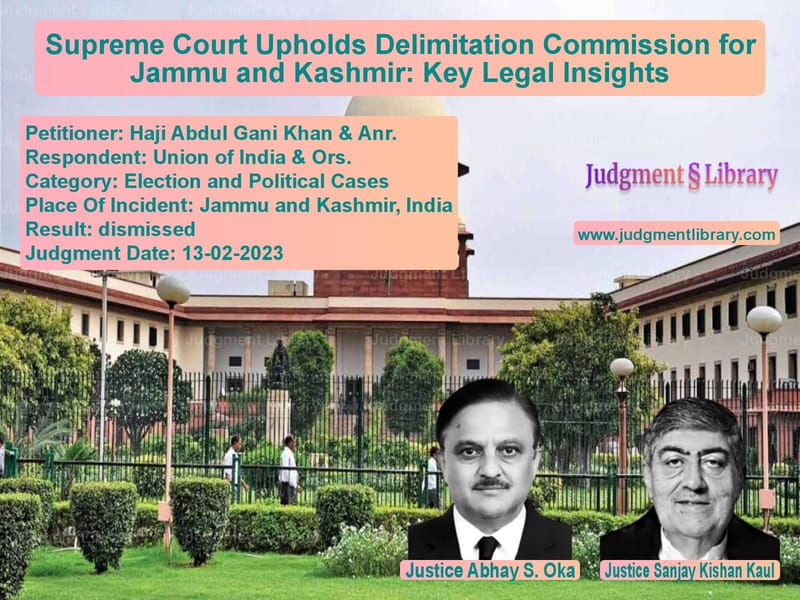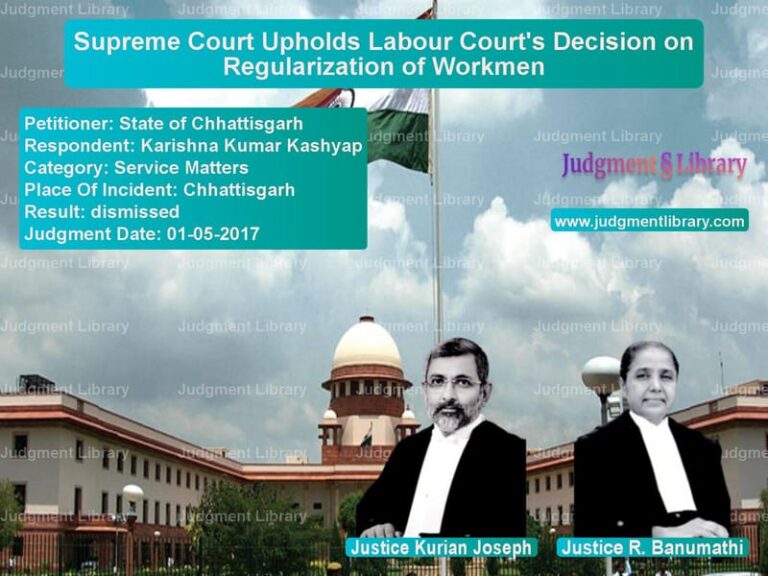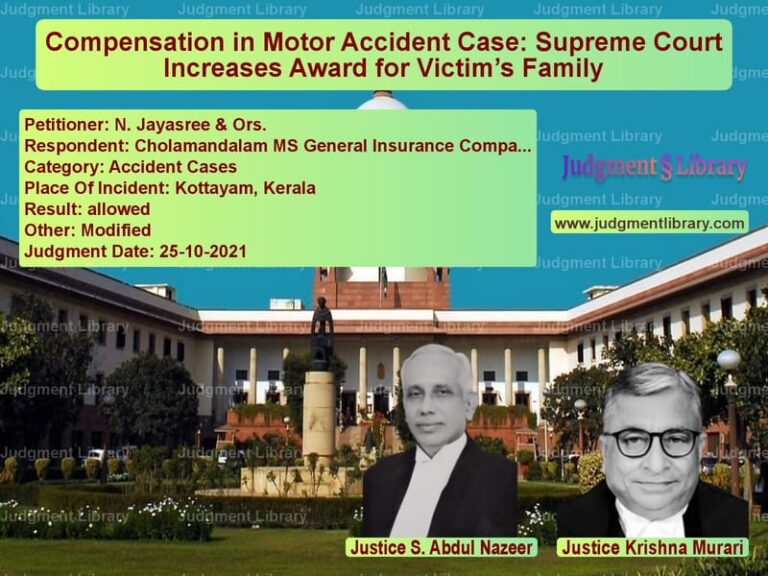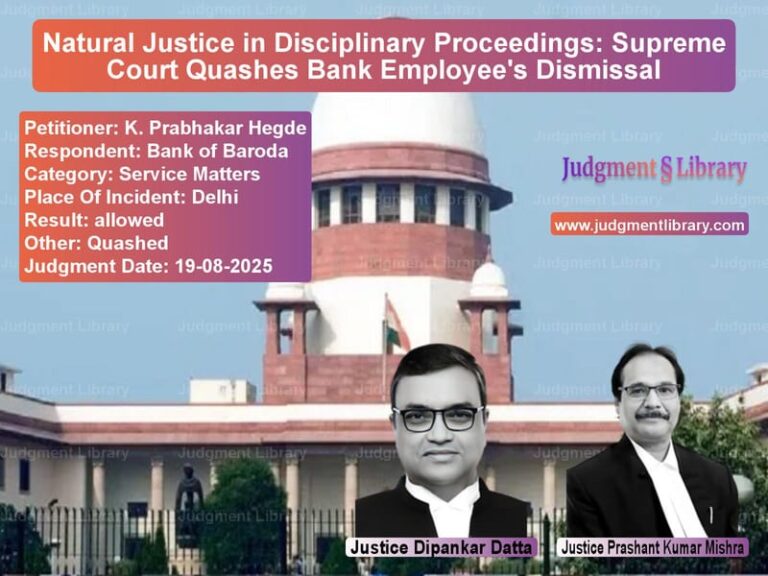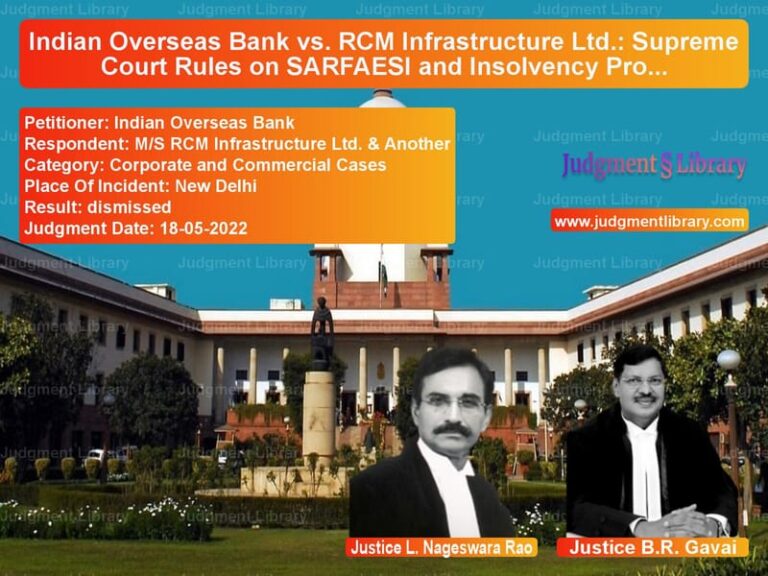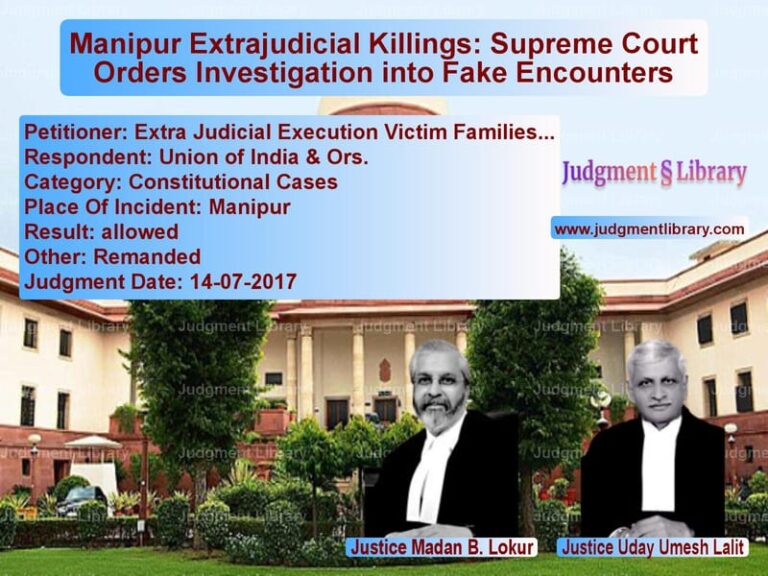Supreme Court Upholds Delimitation Commission for Jammu and Kashmir: Key Legal Insights
The Supreme Court of India recently delivered a landmark judgment in the case of Haji Abdul Gani Khan & Anr. vs. Union of India & Ors., addressing the legality of the constitution of the Delimitation Commission for the Union Territory of Jammu and Kashmir. The petitioners challenged the exercise undertaken by the Delimitation Commission under the Delimitation Act, 2002, questioning its constitutional validity and its conformity with the Jammu and Kashmir Reorganisation Act, 2019.
Background of the Case
The dispute stemmed from the reorganization of the State of Jammu and Kashmir following the Presidential Order of August 5, 2019, which effectively abrogated Article 370 of the Constitution. The reorganization resulted in the bifurcation of Jammu and Kashmir into two Union Territories: Jammu and Kashmir and Ladakh. Subsequently, on March 6, 2020, the Central Government constituted a Delimitation Commission to delineate assembly and parliamentary constituencies within the Union Territory of Jammu and Kashmir.
The petitioners challenged this process on various grounds, including the alleged violation of constitutional provisions and the applicability of the Delimitation Act, 2002, to Jammu and Kashmir.
Petitioners’ Arguments
- The petitioners contended that the exercise of delimitation was unconstitutional as Article 170 of the Constitution prohibits any changes to the composition of the Legislative Assembly until after the first census post-2026.
- They argued that the Delimitation Commission was illegally constituted and usurped the powers of the Election Commission of India, which should have carried out the delimitation process.
- The petitioners also claimed that the increase in assembly seats from 107 to 114 was arbitrary and contravened constitutional provisions regarding state legislature composition.
- They further contended that the exclusion of four North-Eastern states—Arunachal Pradesh, Assam, Manipur, and Nagaland—from the delimitation process created an unreasonable distinction and violated Article 14 of the Constitution.
Respondents’ Arguments
- The Union of India, represented by the Solicitor General, argued that the challenge was barred by delay and laches since the Delimitation Commission was established in 2020, and the petition was filed only in March 2022.
- The government maintained that the delimitation was carried out in accordance with Section 62 of the Jammu and Kashmir Reorganisation Act, 2019, which mandated readjustment based on the 2011 census.
- They contended that the provisions of Article 170, which apply to state legislatures, did not extend to Union Territories, including Jammu and Kashmir.
- The Solicitor General also cited the Meghraj Kothari v. Delimitation Commission case to argue that once the delimitation order is published, it attains the force of law and cannot be questioned in court.
Key Observations by the Supreme Court
- The Court held that Article 170 does not apply to Union Territories and, therefore, cannot be used to challenge the delimitation process in Jammu and Kashmir.
- It ruled that the Delimitation Commission was validly constituted under Section 62 of the Jammu and Kashmir Reorganisation Act and had the authority to carry out the exercise.
- The bench observed that the increase in assembly seats was within the framework of the Reorganisation Act and did not violate any constitutional provisions.
- On the exclusion of the North-Eastern states, the Court found that their exclusion was based on security concerns and pending litigations in those states, which justified differential treatment.
Judgment
- The Supreme Court dismissed the petition, holding that the Delimitation Commission was lawfully constituted and its actions were valid.
- The Court ruled that the increase in assembly seats from 107 to 114 was legal and consistent with the Jammu and Kashmir Reorganisation Act.
- It upheld the Delimitation Commission’s authority to determine assembly and parliamentary constituencies in Jammu and Kashmir.
- The exclusion of North-Eastern states from the delimitation process was deemed to be within the legislative competence of the government.
Implications of the Judgment
This ruling has significant implications for electoral and constitutional law:
- Clarifying Union Territory Governance: The judgment affirms that Article 170 does not apply to Union Territories, allowing their assembly composition to be determined by parliamentary legislation.
- Legitimizing the Delimitation Commission: The Court reinforced that the Delimitation Commission has the legal mandate to redefine constituency boundaries in Jammu and Kashmir.
- Precedent for Future Challenges: This decision sets a precedent for future disputes involving constitutional provisions governing Union Territories.
- Electoral and Political Impact: The increase in assembly seats is likely to influence political representation and governance in Jammu and Kashmir.
Conclusion
The Supreme Court’s ruling in this case is a pivotal decision that upholds the legitimacy of the delimitation exercise in Jammu and Kashmir. The judgment not only clarifies constitutional provisions regarding Union Territories but also establishes a framework for future delimitation exercises in India. By affirming the validity of the Jammu and Kashmir Reorganisation Act, 2019, and the authority of the Delimitation Commission, the Court has reinforced the government’s approach to restructuring political representation in the region.
Petitioner Name: Haji Abdul Gani Khan & Anr..Respondent Name: Union of India & Ors..Judgment By: Justice Abhay S. Oka, Justice Sanjay Kishan Kaul.Place Of Incident: Jammu and Kashmir, India.Judgment Date: 13-02-2023.
Don’t miss out on the full details! Download the complete judgment in PDF format below and gain valuable insights instantly!
Download Judgment: haji-abdul-gani-khan-vs-union-of-india-&-ors-supreme-court-of-india-judgment-dated-13-02-2023.pdf
Directly Download Judgment: Directly download this Judgment
See all petitions in Legislative Powers
See all petitions in Public Interest Litigation
See all petitions in Constitution Interpretation
See all petitions in Separation of Powers
See all petitions in Fundamental Rights
See all petitions in Judgment by Abhay S. Oka
See all petitions in Judgment by Sanjay Kishan Kaul
See all petitions in dismissed
See all petitions in supreme court of India judgments February 2023
See all petitions in 2023 judgments
See all posts in Election and Political Cases Category
See all allowed petitions in Election and Political Cases Category
See all Dismissed petitions in Election and Political Cases Category
See all partially allowed petitions in Election and Political Cases Category

